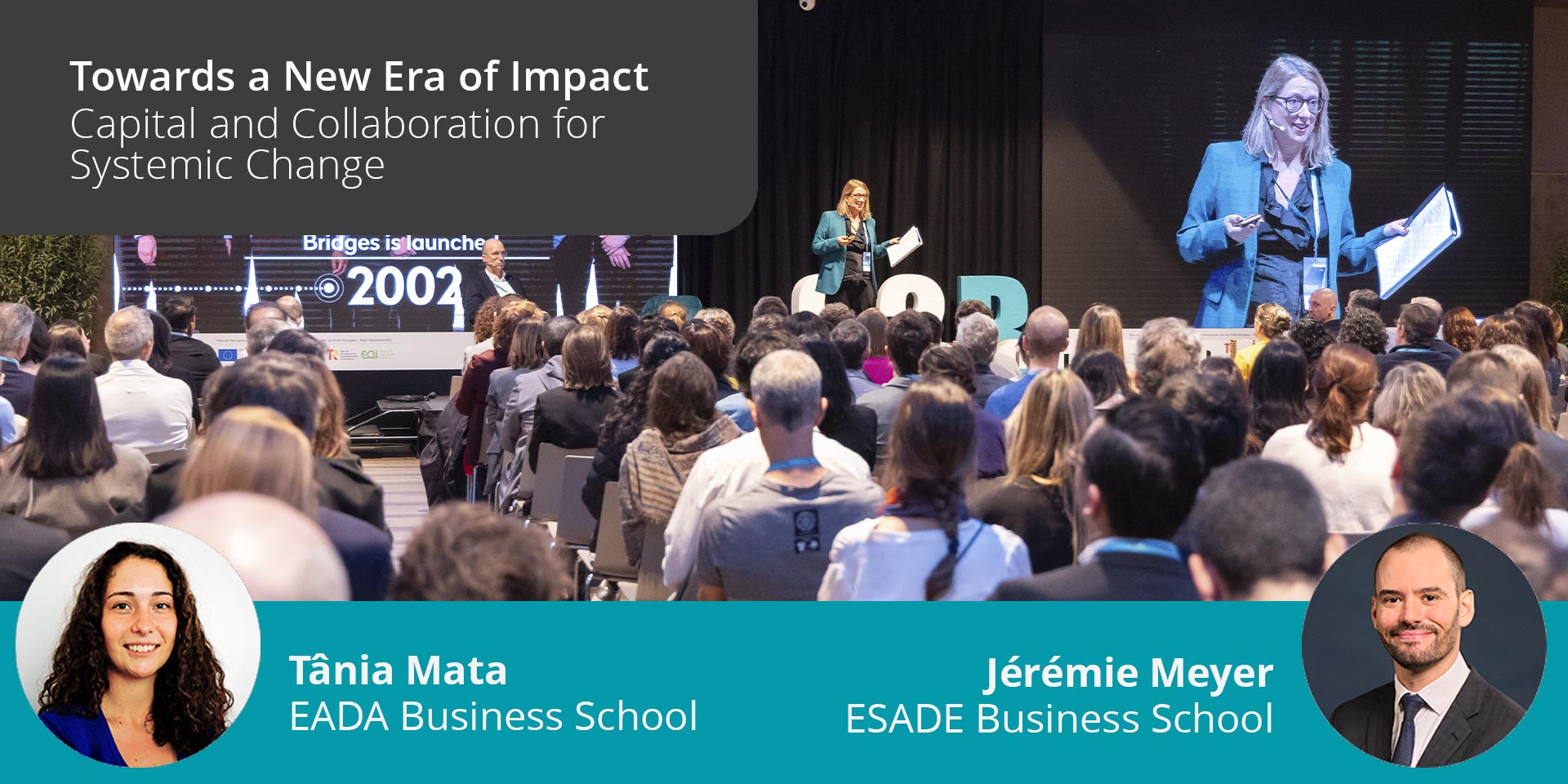
On the morning of November 7th in Barcelona, Xavi Pont and Guillermo Ricarte inaugurated the 11th Ship2B Impact Forum. After over a decade of convening this annual event, it was a fitting moment to evaluate the progress of the impact economy and its future trajectory. The journey traces back to the insights of Harvard professor Michael Porter, who emphasized that “shared value is not corporate social responsibility, philanthropy, or sustainability, but a new way to achieve economic success.” For capitalism to advance societal well-being, it must generate impact exceeding the capabilities of philanthropy or the public sector alone.
The forum set out to explore critical questions:
- How far have we come?
- What lies ahead in the evolution of the impact economy, or “Impact Investment 2.0”?
- How can businesses authentically drive systemic change without succumbing to impact washing?
Throughout the day, experts, impact funds, and social entrepreneurs shared their insights and experiences. The event began with a dynamic series of panel discussions featuring key players from across the impact ecosystem. Representing private impact investing were Michele Giddens (Bridges Fund Management) and Dirk Meuleman (Phenix Capital), while Uli Grabenwarter (European Investment Fund) provided the perspective of Development Finance Institutions (DFIs). From the corporate world, Pierre Guerin (AFIR – Decathlon Family Holding) shared strategies for fostering authentic impact, while social entrepreneurs Blanca Hernández (TuTECHÔ) and Ndiarka Mbodji (Kowry Energy Services) reflected on their transformative work.
The Next Stage of Impact Economy
Despite the remarkable growth of impact investing—reaching $1.57 trillion in assets under management (AUM) in 2024 with a 21% compound annual growth rate (CAGR) since 2019—Michele Giddens cautioned that it is far from sufficient. Speaking with Daniel Sanchez (Ship2B Ventures), she highlighted how the underinvestment in vulnerable communities exacerbates inequities during the transition to net-zero. Giddens underscored the challenge: “We are not doing enough! We are not channeling sufficient funds, nor are we investing in the next frontier of innovation, which is often risky and expensive.” She also raised concerns about the ethical implications of emerging technologies.
Is Impact Investing a Washing Machine?
A provocative discussion moderated by Xavi Pont between Uli Grabenwarter and Dirk Meuleman tackled whether impact investing risks becoming a form of greenwashing. Uli argued that the sector often perpetuates the myth that financial returns and socio-environmental impact can always coexist: “We sell the lie that there is no trade-off. We can’t have the cake and eat it too.” He also warned that the sector cannot afford to wait for the “perfect” investment opportunities—it must prioritize being impact-first.
Dirk offered a counterpoint, asserting that financial success and positive impact can coexist. While he acknowledged that scaling impact-focused ventures may be slow, he maintained that the cumulative progress is meaningful. Despite differing viewpoints, the panelists agreed on one thing: to win the “second half” of this game, the sector must pair ambition with decisive action.
Decathlon: An Authentic Corporate Impact Journey
The second half of the morning featured a conversation between Tatiana Glad (Impact Hub Global) and Pierre Guerin, focusing on how a corporation can authentically embed impact into its business model. Two pressing questions guided the discussion:
- How can a corporation as large as Decathlon prioritize impact authentically?
- How can it align its 100,000+ employees and a supply chain affecting over 2 million people?
Pierre emphasized intentionality in goal-setting and governance. Decathlon now incorporates six social and environmental metrics into its annual valuation process. A failure to align with the Paris Agreement, for instance, would directly lower the company’s valuation. Additionally, as a private company with over 60,000 employee shareholders, Decathlon’s stakeholders have a vested interest in its sustainability.
Governance was another focal point. Decathlon balances top-down directives with bottom-up innovation and feedback, especially from its young workforce. One such priority, the circular economy, is set to quadruple to represent 10% of the company’s revenue within three years.
Impact Centric – The Next Stage
Finally, the last panel brought together influential voices in the impact investing sphere, where leaders shared their vision for a more sustainable and equitable future. The conversation, featuring Blanca Hernández from TuTECHÔ, Ndiarka Mbodji of Kowry Energy Services, and moderated by Guillermo Ricarte of Ship2B Foundation, delved deep into the evolving landscape of impact-centric investments.
The dialogue opened with a fundamental truth: the future of impact investing lies at the intersection of profit and purpose. As the panelists shared their experiences, it became clear that successful impact initiatives require more than just capital – they demand a deep understanding of community needs and a commitment to sustainable change.
Ndiarka Mbodji shared compelling insights from her work in Sub-Saharan Africa, where Kowry Energy Services is tackling energy access challenges. She emphasized that while large-scale grid solutions are necessary, the real transformation happens at the community level. By focusing on small-scale initiatives, they’ve witnessed how reliable energy access can catalyze economic growth and improve livelihoods.
Blanca Hernández brought a different perspective through TuTECHÔ’s work in housing and social innovation. Their approach demonstrates how philanthropic efforts can evolve into sustainable impact investment models. By creating partnerships with social entities and corporate stakeholders, they’ve developed an ecosystem that addresses homelessness while ensuring dignity and social integration.
Perhaps the most powerful message emerged around the concept of collaboration. The panelists agreed that systemic change requires more than isolated efforts – it demands a movement. This movement brings together investors, social entities, corporations, and most importantly, the communities they serve. As both leaders noted, it’s about creating an ecosystem where multiple stakeholders can contribute meaningfully to social change.
The session concluded with a call to action: the future of impact investing lies not just in financial returns, but in our ability to create lasting, positive change through collaborative action and community-centered approaches. As the panel demonstrated, when we align profit with purpose and bring together diverse stakeholders, we can create solutions that truly serve those who need them most.
